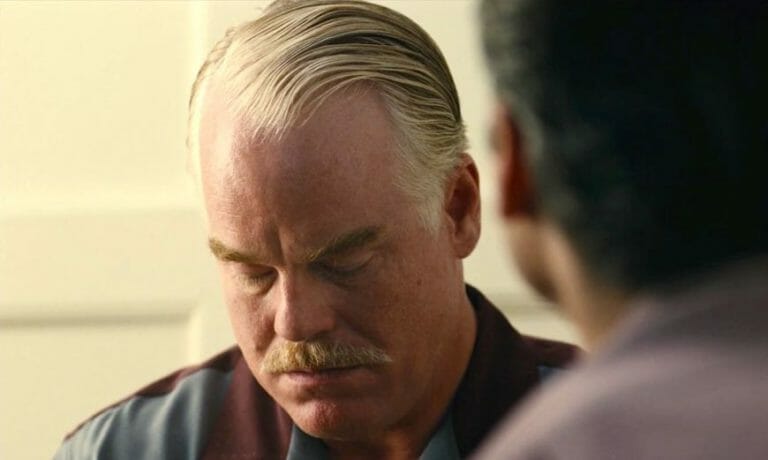Sign up for the
TSL Newsletter
and get $50 off Final Draft 12
By Eric Owusu · December 26, 2014

“Every story is a story about people, or – or it sucks.”
In a recent interview with Impossible Network, screenwriter and producer Joss Whedon gave the above quote and got me thinking. He’s absolutely right. Screenplays where the story focuses on settings or themes more than they do the characters in them are lacking elements that audiences can relate to, making them ‘suck.’
Like all things worth doing, though, writing a good screenplay where we follow people and their stories is difficult. Below are some elements to help spur some ideas for your people-driven screenplay.
Introduce The Characters or Main Protagonist Clearly
In the screenplay for Paul Thomas Anderson’s The Master, we meet Freddie Sutton in 1952 in a doctor’s office. He serves as the audience’s guide through this screenplay and he is arguably the most tortured, flawed, and interesting character in the screenplay. We follow him from job to job after his time serving in World War II while he makes potent alcohol from paint thinner that he uses to assuage his pain.
Through him we meet Lancaster Dodd, the Dodd family, and Dodd’s followers. These characters are interesting and have their own narratives that are conveyed in the screenplay through dialogue and introductions, mainly during Dodd’s daughter’s wedding on a boat. What makes these characters interesting, as in the case of Freddie, is how Anderson makes the effort to…
Show Their Problems/Flaws/Situations
In the beginning and throughout the screenplay, Anderson uses a few flashbacks to show the audience experiences that affect Freddie in the present. His promise to return to his young love before going to war and his clowning on the beach with the fellow soldiers and the woman they sculpted in the sand, for example, show different sides of this character and help explain his thought processes and decision making. Freddie has a sordid past and it exhibits himself in sometimes volatile ways. Because he is a wanderer, he stows away on Dodd’s follower’s boat out of curiosity and also to find shelter and food. A put-together individual wouldn’t do something like that, but our Freddie does. Next…
Show How The Characters Respond to Their Problems
Freddie gets drunk aboard the boat and Dodd’s family discovers him. Instead of fleeing, Freddie converses with Lancaster and they strike a deal where Freddie can stay and work for him if he keeps making more alcohol. Freddie stays and undergoes one of Lancaster’s “processing” exercises, which amazes Freddie and intrigues Lancaster. The two are seemingly inseparable because Lancaster is shown helping Freddie face his tortuous memories, insecurities, and secrets. But even though Freddie faces his old problems doesn’t mean he’s done making new ones, which is a very compelling and human trait for a flawed protagonist to have.
Show Them Finding Some Success
Freddie begins to feel at home with Lancaster and his family. He enjoys Lancaster’s company and defending Lancaster against skeptics of Lancaster’s teachings. Freddie is as much a follower as the wealthy women Lancaster has entranced. Freddie still has problems while employed by Lancaster. Mrs. Dodd isn’t particularly fond of Freddie, Lancaster’s newly wed daughter is too fond of Freddie, and Freddie goes too far in defending Lancaster. But his life with the Dodd family and the members of The Cause are far better than they were without them. Keep similar conflict coming in your screenplay, even amidst progress.
Have The Protagonists Hit Huge Roadblocks
Anderson has Freddie and Lancaster meet more conflict while Freddie is under Dodd’s employ. Freddie assaults Lancaster’s detractors and police officers. Lancaster and Freddie get arrested. Such conflicts can serve to show the protagonists’ true colors and mettle, if they have any, and Anderson uses them as opportunities to show how Freddie and Lancaster deal with the problems facing them.
Show How They Do or Don’t Resolve Their Conflicts
Towards the end, Freddie leaves to revisit something tormenting him from his past. He returns to Lancaster, but is given an ultimatum to stay with them or to leave them forever. Freddie’s decision shows who he is as a character, as your protagonist’s decisions should as well. Does your character change drastically? Do they remain they same throughout and through to the end? How do they show their change or lack of change? You should address these questions in the action and dialogue lines of your characters.
The Master is a great example of a screenplay that closely examines people. It illustrates the relationship between sheep and shepherds where people are looking for love, meaning, family, things to do and things to believe in. That’s all people in reality are looking for and your screenplay should reflect some of these elements, however you want it to.
Photo and Clips: The Weinstein Company and Annapurna Pictures